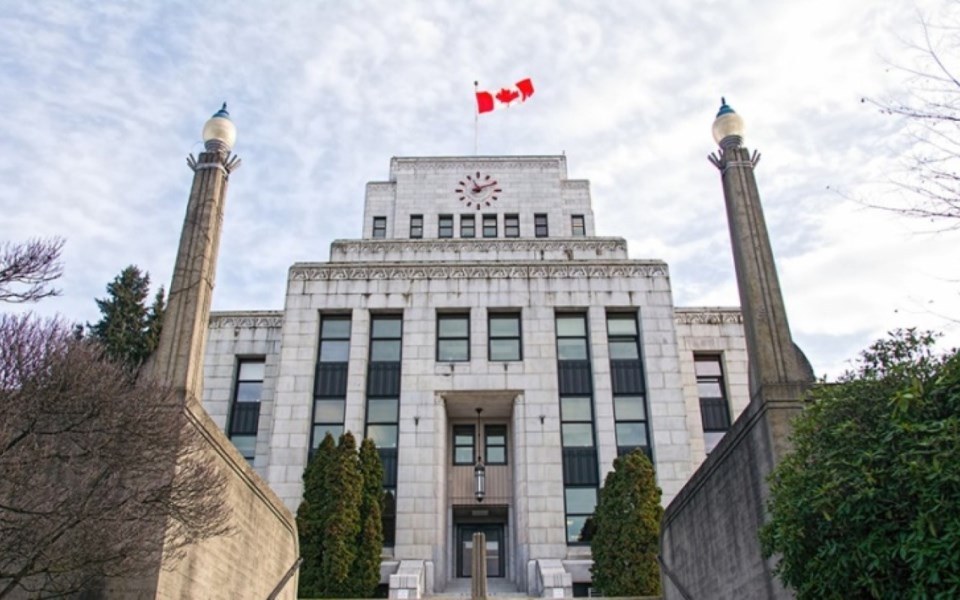A B.C. ministerial order gives local governments significant power to pass bylaws in one sitting, a move observers say violates democratic principles.
NDP Solicitor General Mike Farnworth's Order 139 "contains the worst approach to emergency management, removing sober second thought exactly when it's needed," said Canadian Civil Liberties Association executive director Michael Bryant.
"Time is democracy's friend; fear and anxiety its enemy," Bryant said, adding such powers allow for the creation of bad law.
"A rushed debate renders sloppy, flawed laws, just as rushed enactment and enforcement leaves citizens' ignorant of the new rules, unable to comply, and punished for no good reason."
Minister Municipal Affairs and Housing Selina Robinson, however, characterized the move as one to help developers provide housing.
"Construction and development activities are expected to be a key part of B.C.'s recovery efforts - and building housing, in particular, affordable housing, will contribute to our goal to provide affordable housing for all British Columbians," Robinson said. "Amending this order will allow local governments to continue their work on land-use decision-making and keep building their communities for the people they serve."
Farnworth made the order May 2, building on an earlier order allowing first, second and third readings and then adoptions of bylaws in single meetings by municipalities and regional districts. The new version adds land trusts to the list of local governments allowed to pass bylaws in such a fashion.
Ministerial Order 139 supersedes a previous order that also made provisions for local governments to meet electronically.
Bryant compared the COVID-19 situation of a form of war-time emergency management.
"Ideally, democratically accountable people apply laws designed outside the 'fog of war,' since the emergency itself brings a fog of greater or lesser uncertainty to decisions made," Bryant said. "Pre-COVID, a sensible delay was built into B.C. municipal and regional council law-making, between a bylaw's conception and birth. That permitted planning, public education and possible correction, before unintended consequences cause their harm.
"It's a democratic safety valve, which the B.C. government has unwisely removed, in the foggiest of times, at the expense of the rule of law and public certainty," he said. "Expect worse law making, plus premature, indiscriminate enforcement, by local governments more powerful than ever today during COVID governance."
The orders invoke both the Local Government Act (LGA) and B.C.'s Community Charter,.
"A bylaw may be given up to 3 readings at one meeting of council," the charter says. "There must be at least one day between the third reading and the adoption of a bylaw."
The LGA is overridden in the section which says a regional district bylaw not requiring approval, consent or assent under the LGA or any other act before it is adopted may be adopted at a meeting where it passes third reading if the motion for adoption receives at least 2/3 of the votes cast.
Robinson's news release said public input is an essential part of land-use decision-making, even for those decisions that do not require a public hearing, local governments are still expected to find ways to encourage public participation – be that through videoconferencing, calling in, written submissions and through websites.
But, the CCLA's director of fundamental freedoms program Cara Zwibel questions how the public can be informed or involved without regular council processes.
"There's not even a day to publish this comes into effect tomorrow,'" Zwibel said.
And, she said, the time between readings and adoption was established to give legislators and councillors time to consider measures before making final decisions.
And, while the courts remain available to hear challenges to legislated decisions that could be outside the scope of their powers, Zwibel said the current situation is problematic,
"The courts aren't operating as they normally do," she said. "You'd have to establish some urgency for it. Technically, if there is some bylaw you feel is restricting your rights, you could attempt to get it struck down."
The B.C. Civil Liberties Association was unavailable for comment.
@jhainswo




